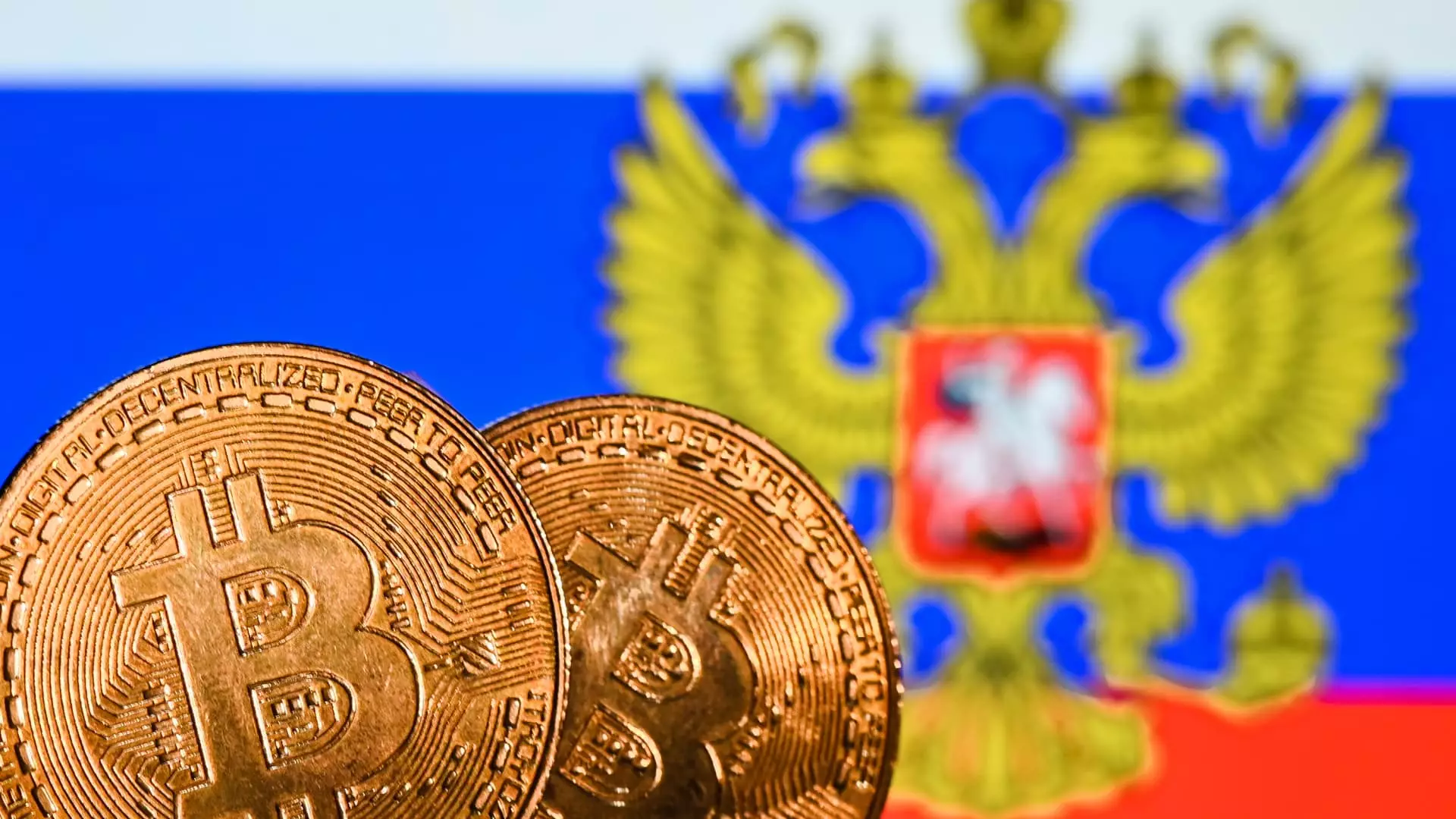Russia is on the brink of a significant change in its financial policies as it considers legalizing the use of cryptocurrency for international payments. The State Duma is set to discuss a new law that would enable international transactions using cryptocurrencies. This move comes in response to Western sanctions that have put immense pressure on Russia’s economy. It is crucial to understand the implications of this potential shift in policy and what it signifies for the global financial landscape.
The decision to consider cryptocurrency for international payments represents a stark reversal from the Russian central bank’s previous stance. Earlier this year, the bank proposed banning the use of crypto, citing potential threats to financial stability and monetary policy sovereignty. However, the current move to legalize cryptocurrency indicates a shift in strategy as Russia seeks alternative pathways for cross-border transactions. The central bank itself is exploring the use of crypto for money transfers, with plans to conduct crypto-based payments by the end of 2024.
The backdrop of Russia’s decision to embrace cryptocurrency is the ongoing geopolitical tensions with the U.S. and its allies, particularly in the aftermath of Russia’s invasion of Ukraine. The subsequent imposition of sanctions by various jurisdictions has compelled Russia to explore innovative solutions to circumvent these financial restrictions. By legalizing cryptocurrency for international payments, Russia aims to create a resilient financial network that is not subject to traditional banking regulations imposed by Western powers.
In addition to exploring cryptocurrency for international transactions, Russia is also delving into the digital realm with the potential introduction of a digital version of the ruble. Unlike cryptocurrencies like bitcoin, central bank digital currencies (CBDCs) are issued directly by the government and mimic fiat currencies in digital form. The move towards a digital ruble signifies Russia’s efforts to modernize its financial infrastructure and adapt to the changing landscape of digital transactions.
While the adoption of cryptocurrencies by sanctioned countries can help evade financial curbs, it also raises concerns about illicit activities such as money laundering and funding of state-sponsored programs. North Korea’s involvement in raising funds through crypto highlights the darker side of digital assets. However, proponents of cryptocurrencies argue that the transparent nature of blockchain technology can serve as a powerful tool in countering illicit activities. The ability to track and trace transactions on a public ledger enables authorities to monitor and prevent misuse of cryptocurrencies.
Russia’s potential legalization of cryptocurrency for international payments and the development of a digital ruble underscore the evolving landscape of global finance. As countries navigate geopolitical pressures and seek to modernize their financial systems, the role of cryptocurrencies and CBDCs will continue to gain prominence. It is essential for policymakers, regulators, and financial institutions to monitor these developments closely and assess the impact on economic stability and financial security. The adoption of cryptocurrency represents a paradigm shift in the way nations conduct cross-border transactions and interact within the global financial ecosystem.


Leave a Reply